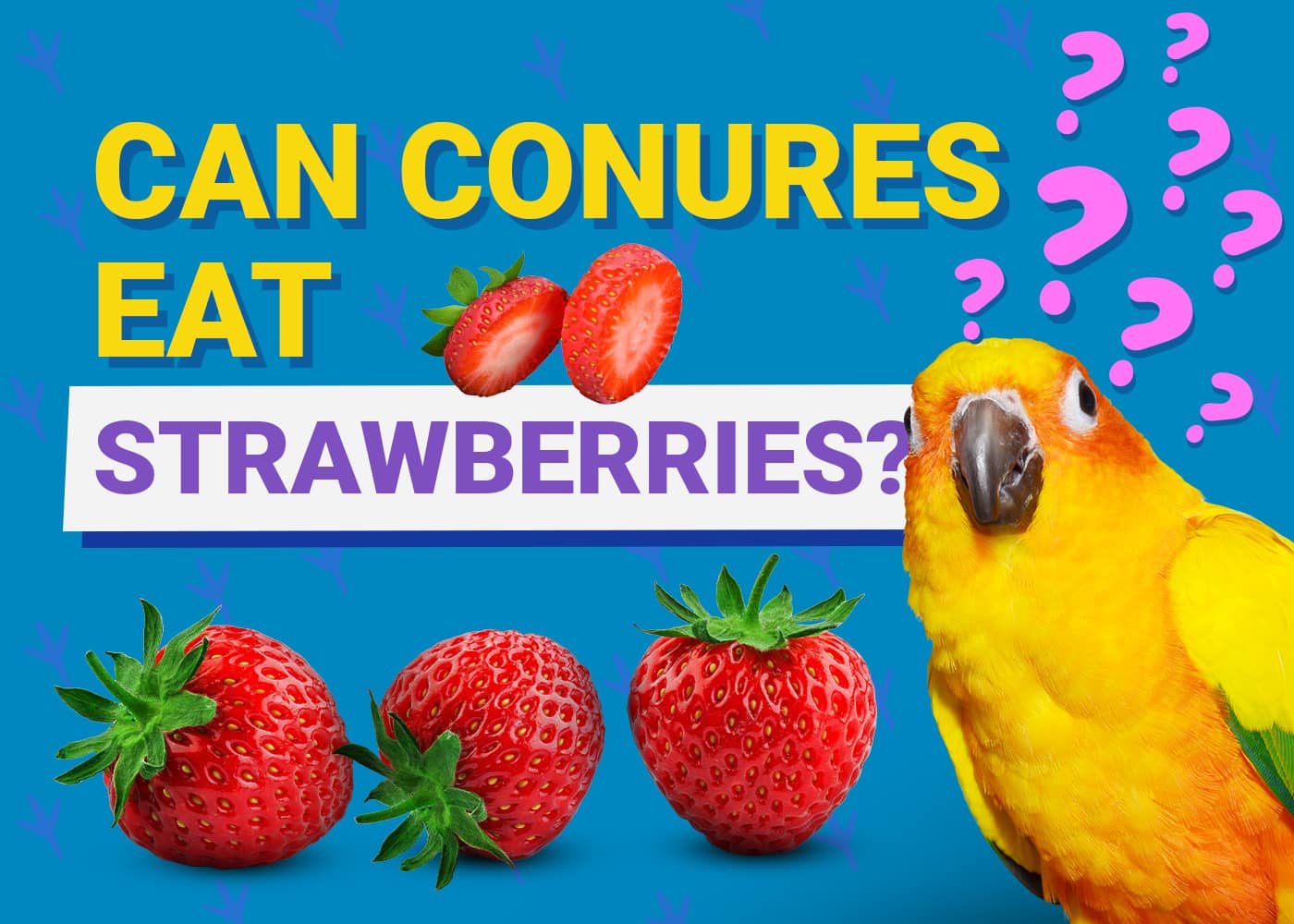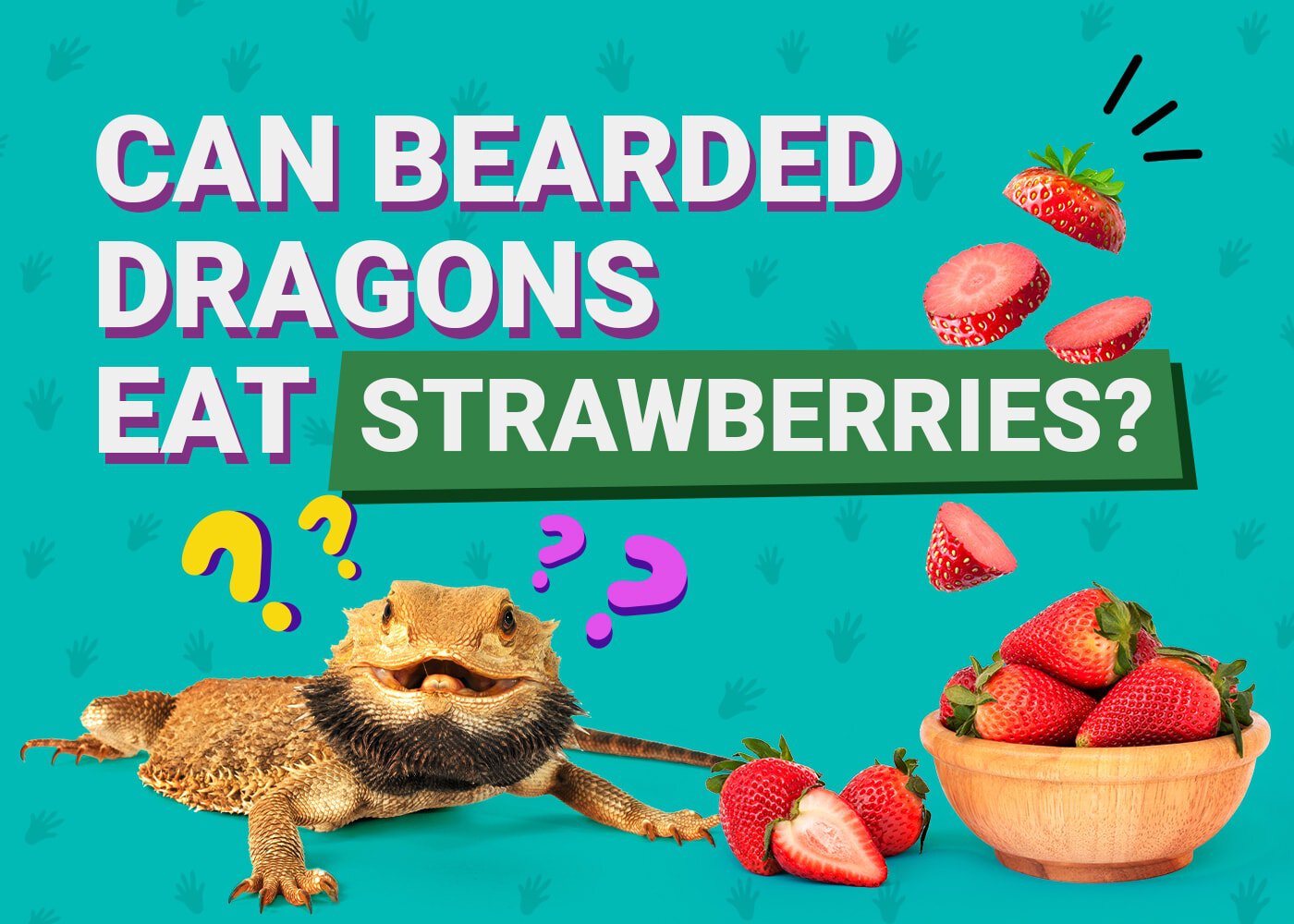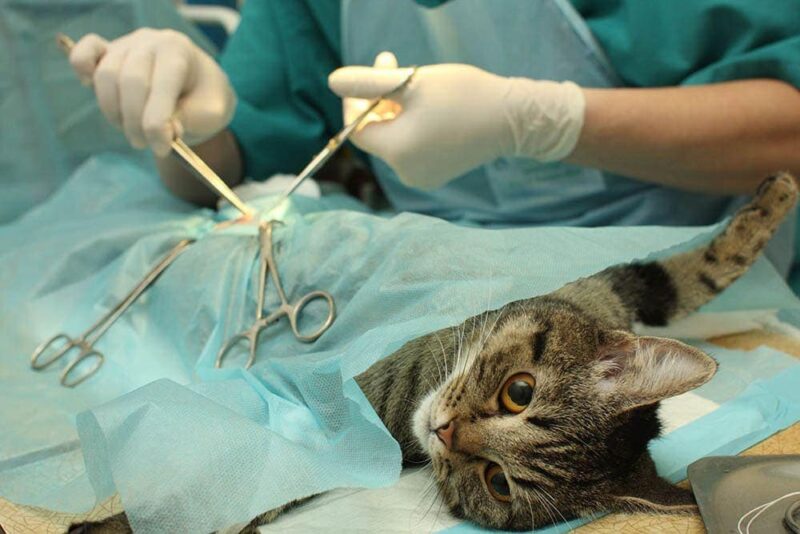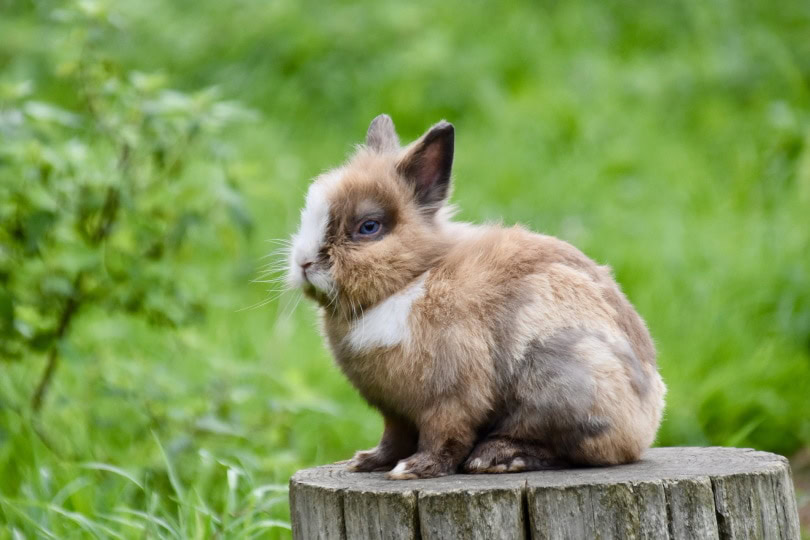VET APPROVED

The information is current and up-to-date in accordance with the latest veterinarian research.
Learn more »Click to Skip Ahead
With over 100 species of parrots included, conures are a varied group of energetic birds that make excellent pets for any family. Conures consume a balanced diet of seeds, pellets, fruits, and vegetables, but can they eat strawberries? Yes, conures can eat strawberries, and when fed in moderation, strawberries are a nutritious treat. Strawberries are high in antioxidants, and are low in sugar when compared to other fruits. This makes them one of the best fruits for pet parrots.
It’s safe to feed your bird the strawberry’s seeds, flesh, and leaves. However, any fresh strawberries should be washed thoroughly to remove pesticide residue. Conures and other parrots are particularly vulnerable to the effects of commercial pesticides. Dehydrated strawberries are safe for parrots as long as you choose a brand that does not use preservatives. Most dried fruits have added sugars and preservatives that are harmful to parrots, but if you dehydrate the fruit at home, it’s safe for your bird.

Conure Diet
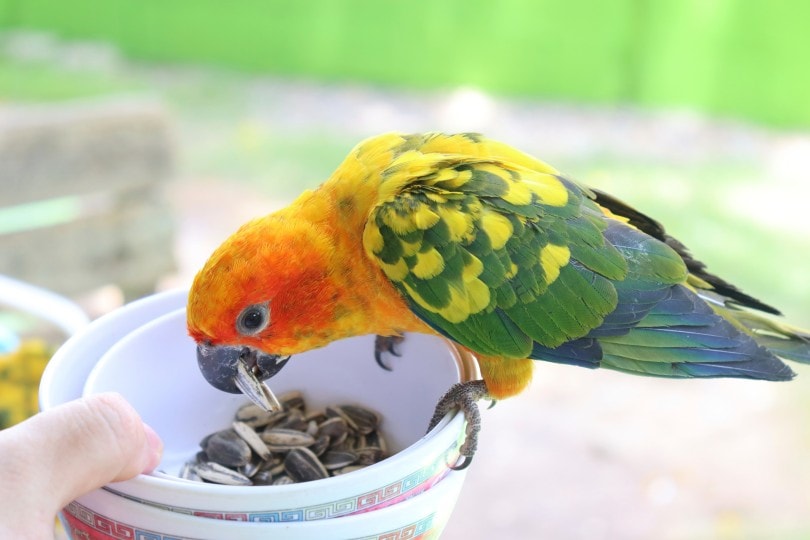
Malnutrition is a common problem with pet birds, and until recently, limited information was published about the ideal diet for conures and other parrots. Although parakeets and cockatiels can consume more seeds than other species, most parrots can become obese if seeds make up most of their diet. The same is true for diets high in fruits; they contain far too many calories compared to the amount of exercise a pet parrot receives.
The general dietary guidelines for most healthy pet parrots can be summarized as follows:
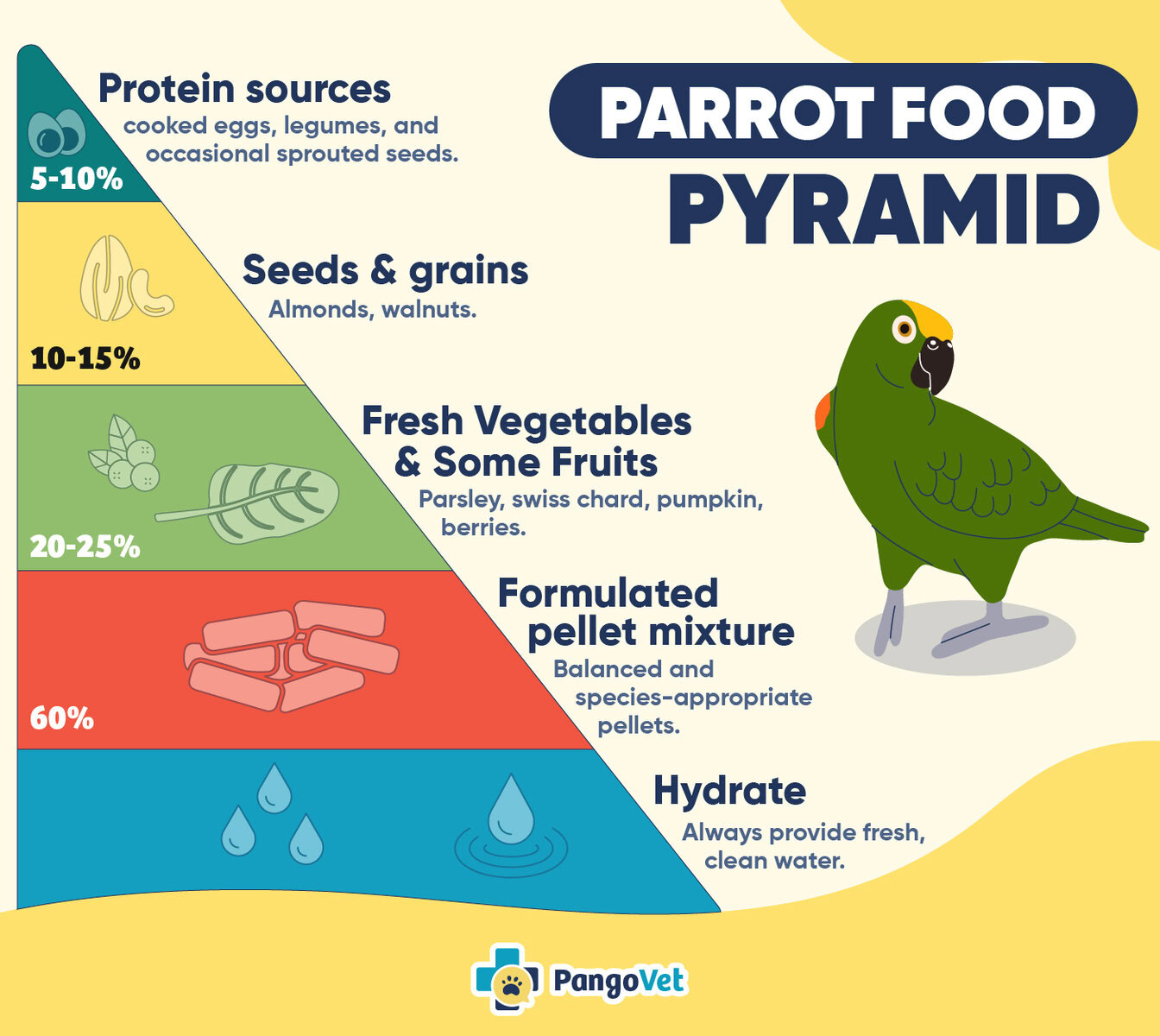
Please do note that the image above is a general guide and not set in stone, per se. The nutritional needs of your pet would definitely vary due to several factors, such as their age, sex, and reproductive status. They would also slightly change throughout various times of the year (for example, when they molt). As such, we strongly recommend reaching out to a veterinarian to better understand and appreciate your pet’s nutritional needs.

3 Other Healthy Foods You Can Add to Your Conure’s Diet
Like humans, conures like variety in their meals. Varying which fruits and vegetables you add can keep your bird happy and healthy. In addition to pellets, fruits, and veggies, here are some healthy meal options you can use to add more variety to your bird’s meals.
1. Sprouted Seeds
Sprouted seeds are bursting with vitamins and nutrients, but you may have trouble finding them during the colder months unless you’re able to grow them at home. Sprouting bird seeds at home is not difficult if you have room on a windowsill for a miniature greenhouse or own a portable unit with grow lights.
2. Grains
Oats, cooked brown rice, barley, wheat, and quinoa are excellent additions to your parrot’s diet that are full of fiber and essential minerals. If you use bread that is low in salt and sugar, you can give your bird a small piece as a treat.
3. Cooked Eggs
Feeding your conure small portions of cooked eggs in vegetable oil (such as canola) is acceptable. It is considered beneficial for birds that are molting (as their protein requirements increase).
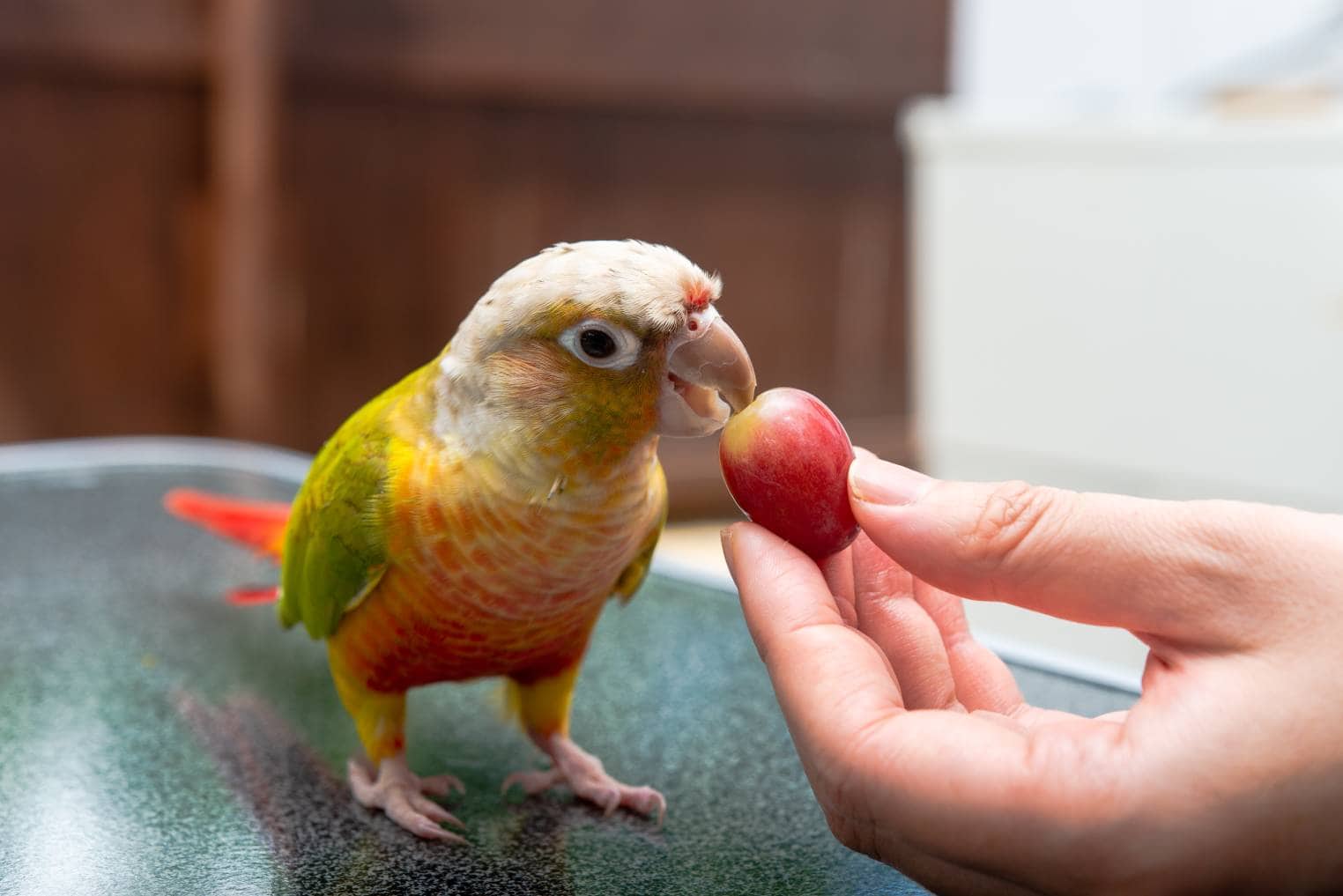

What Foods to Avoid
Conures can be fussy with their meal choices, but fortunately, most of the food humans consume is safe for birds. Although they can eat virtually any fruit, some of the seeds can be toxic to parrots. Strawberry seeds are safe, but remember to remove these seeds:
- Apricot
- Plum
- Peach
- Nectarine
- Apple
- Cherries
Toxic Vegetables
The only vegetables and fruits that you should avoid are avocados, tomatoes, and rhubarbs. Avocados contain the substance persin that can cause respiratory failure or sudden death if digested. The avocado’s seeds, leaves, and meat can harm your bird, so don’t let your feathered friend sample your leftover guacamole.
Tomatoes are safe if ripe, however, they shouldn’t be offered raw as they can cause tomatine or solanine toxicity. Rhubarbs are toxic for parrots and shouldn’t be offered to them.
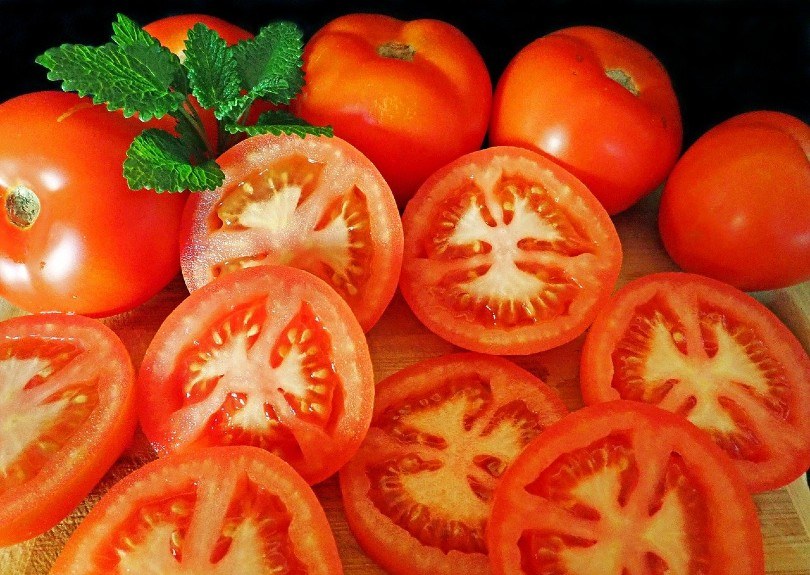
Human Favorites to Avoid
It’s entertaining to feed a conure bits of your breakfast or lunch when it’s perched on your shoulder or crawling on your desk. Parrots enjoy eating the same food as their human masters, but they can have adverse reactions if you feed them any of these substances:
- Chocolate
- Caffeine
- Alcohol
- Artificial sweeteners
- Garlic
- Onions
- Salty snacks
- Sweets
- Food high in fat
Developing a diet that your conure enjoys may involve a little experimentation, but you can test out different veggies and fruits each week to determine which ones your bird wants the most.

Final Thoughts
Adding strawberries to your conure’s diet helps maintain a healthy digestive and immune system but try to limit their servings to two or three times a week. The natural sugars in strawberries can affect their metabolism and lead to obesity if they consume too much. You can find strawberries and strawberry juice in numerous forms but avoid dried or processed products. Chopping up fresh strawberries is the healthiest way to feed your bird, and it’s amusing to watch a conure make an enormous mess out of his meal. If you primarily feed your conure pellets, fruits, and vegetables, they can live a long and happy life.
- Related reading: Can Conures Eat Pineapple?
Featured Image Credit: Piqsels
